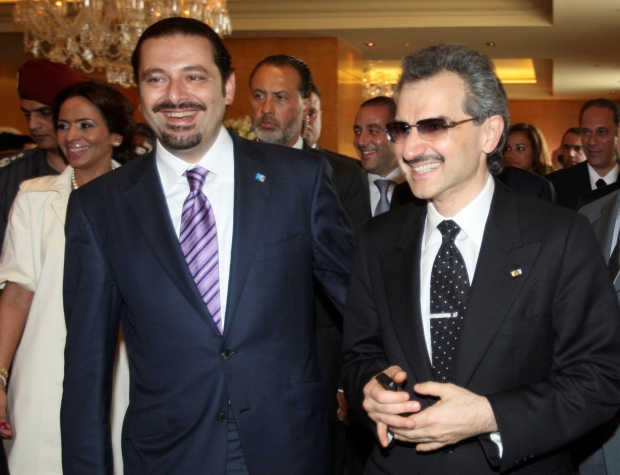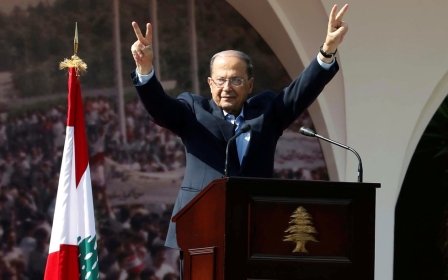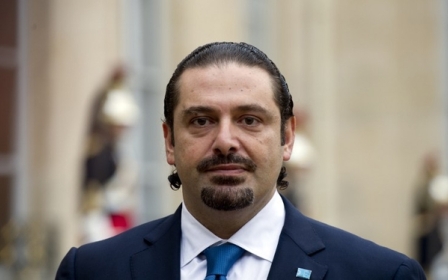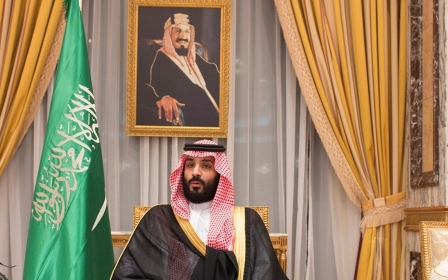Saad Hariri’s resignation? Part of Saudi's latest push to confront Iran
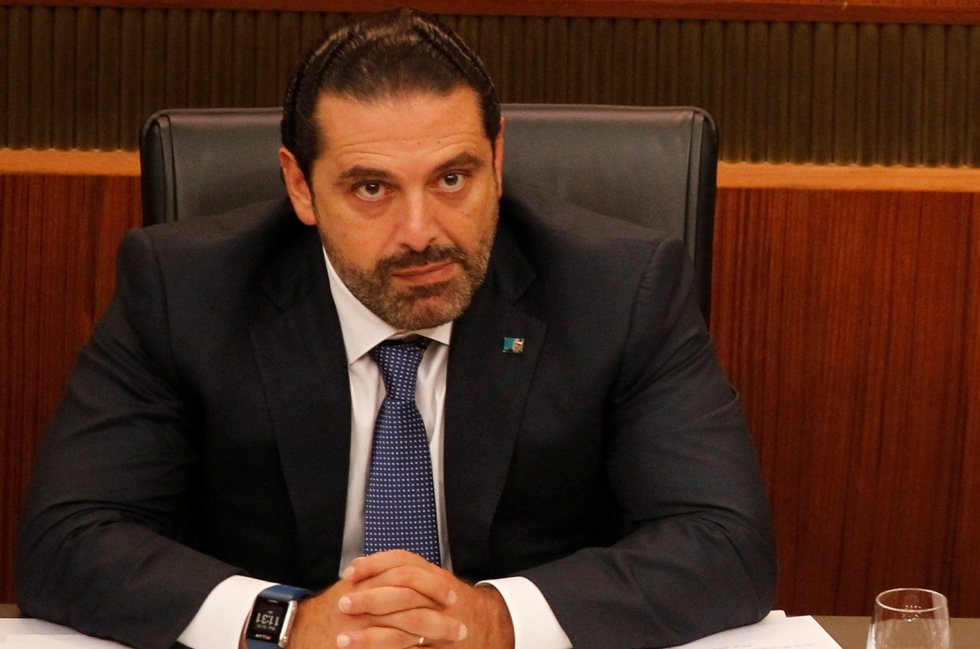
The resignation of Lebanese Prime Minister Saad Hariri on Saturday sent shockwaves across Lebanon. It came after several statements by Hariri to political leaders in Lebanon about his commitment to the national unity government through which he had come to power just over a year ago following a period of political vacuum in the country.
Hariri's resignation was announced during his second trip to Saudi Arabia in one week, sparking much speculation about his relationship with Saudi Arabia and the kingdom's intentions in Lebanon in particular and vis-à-vis Iran more broadly.
Playground for rivalries
While much of this speculation was based on rumours, the developments in Lebanon are part of a wider process of change happening in Saudi Arabia's policy towards Iran in which Riyadh is becoming increasingly hawkish.
Lebanon has always been a playground for rivalries between foreign actors.
The Saudi-Iranian rivalry has played out in Lebanon sometimes in the form of soft confrontation between their respective Lebanese allies through the ballot box, and sometimes through escalated activities like the stand-off between the Hezbollah-dominated (and therefore pro-Iranian) March 8 political coalition and the March 14 camp led by Saad Hariri's political party, the Future Movement (and therefore pro-Saudi).
The stand-off meant that on more than one occasion, Iran's and Saudi Arabia's allies in Lebanon refused to participate in the same government or disagreed on which electoral law should be used in the next round of elections.
These disagreements led to a political deadlock that left Lebanon facing a cycle of postponed parliamentary elections.
Having Hariri out of power is better than witnessing him face a significant loss in the ballot box
The Saudi-Iranian rivalry is also playing out in neighbouring Syria, where Hezbollah has been actively supporting the regime of Bashar al-Assad, while Saudi Arabia has tried several methods aimed at toppling the regime. Most notably the Saudis sought to unify the Syrian opposition with the creation of the Higher Negotiating Committee that was first announced in Riyadh in 2015 to pave the way for a negotiated political transition in Syria through the Geneva process.
The situation in Syria added to the pressure on the pro-Saudi camp in Lebanon, which had explicitly rejected Hezbollah's intervention in Syria on the basis that this intervention is not related to Lebanese interests.
The questioning of Hezbollah's role in Syria in 2013 led to the inability of then-prime minister Tammam Salam to form a cabinet for a period of 10 months.
Iran meddling
It is in the context of those two interlinked developments that a national unity government was eventually announced in Lebanon last year to end the political vacuum, bringing back Saad Hariri as prime minister, while March 8's General Michel Aoun was announced as president.
The Lebanese street breathed a sigh of relief at what appeared to be a national compromise blessed by both Saudi Arabia and Iran. But neither subsequent developments in Lebanon nor those in Syria showed that this compromise was in Saudi Arabia’s favour.
Taking advantage of the United States' inaction on Syria, Iran, in partnership with Russia, expanded the scope of its activities in Syria. Hezbollah gained from this process, strengthening its military capability inside Lebanon.
Iran's meddling in Syria and Hezbollah's increased stature became a cause of concern for Saudi Arabia, especially after the ascension of Prince Mohammed bin Salman to the position of crown prince.
Having faced Iran's Houthi allies in Yemen through military confrontation, Saudi Arabia in this new era started edging closer to a hardline stance towards Iran. This culminated in the abandonment of the path of seeking compromise, as demonstrated by the Saudi-blessed resignation of Hariri from the Lebanese national unity government.
Political vaccum
While Hariri’s resignation means that Lebanon once again finds itself in a political vacuum, it also works in Saudi Arabia's favour because the electoral law that was finally agreed on by the Hariri-led national unity government, paving the way for parliamentary elections to take place in May 2018, would have resulted in fewer votes for Hariri's party.
Having Hariri out of power is better than witnessing him face a significant loss in the ballot box.
Many in Lebanon fear that this political vacuum might pave the way for a hot war between Hezbollah and Israel, because the latter shares Saudi Arabia's rejection of Iranian interests. But the likelier scenario is one in which Saudi Arabia works with the United States and its allies to increase pressure on Iran inside Syria and outside.
The wave of arrests of high profile figures that the Saudi government has led is a strong signal that no one is immune: if the kingdom's leadership can be this ruthless with its own citizens, what can one expect from how it will approach its rivals?
In the end, there could not have been a solution for the situation in Lebanon without things being first settled in Syria. Lebanon has always been more of a witness of side effects of international developments than an agenda setter of regional politics.
With the end of the national unity government in Lebanon, Saudi Arabia has left the negotiating table and is preparing to enter the boxing ring
While a political vacuum in Lebanon is worrying, it gives Saudi Arabia space to reorder its affairs in the country. For as long as Iran continues to be the most prominent international player in Lebanon, Saudi Arabia will be in no rush to install a loyal figure to fill the position vacated by Hariri, because that means having to work with Hezbollah one way or another.
With Hariri's resignation, Saudi Arabia is therefore resetting its terms of engagement with Iran. After all, Lebanon was the only place in which pro-Saudi and pro-Iranian players were in an uncomfortable political marriage.
With the end of the national unity government in Lebanon, Saudi Arabia has left the negotiating table and is preparing to enter the boxing ring.
The next chapter in the Saudi-Iranian relationship is likely to be a harsh one.
- Lina Khatib is the head of the Middle East and North Africa Programme at Chatham House. You can follow her on Twitter @LinaKhatibUK.
The views expressed in this article belong to the author and do not necessarily reflect the editorial policy of Middle East Eye.
Photo: Lebanon's Prime Minister Saad al-Hariri attends a general parliament discussion in downtown Beirut, Lebanon October 18 2017 (Reuters)
New MEE newsletter: Jerusalem Dispatch
Sign up to get the latest insights and analysis on Israel-Palestine, alongside Turkey Unpacked and other MEE newsletters
Middle East Eye delivers independent and unrivalled coverage and analysis of the Middle East, North Africa and beyond. To learn more about republishing this content and the associated fees, please fill out this form. More about MEE can be found here.



